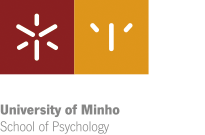Our research team, is composed by several master, PhD and post-doc researchers interested in the study of process research in psychotherapy. Leaded by Miguel M. Gonçalves, in the last few years this team has been dedicated to the study of the processes by which clients change, or fail to change in psychotherapy.
This line of research departs from a narrative framework assuming that when clients arrive to therapy they are frequently constrained regarding their meaning making processes (problematic self-narrative). The problematic self-narrative consists of a set of implicit meaning rules (e.g. the client values the others’ needs and opinions over his/her own) that organize cognitive, emotional and behavioral processes. As change occurs, these implicit meaning rules get challenged, giving rise to exceptions to the rule. These exceptions are denominated by our research team as innovative moments - IMs. Until the present time seven different types of IMs have been identified (action 1 and 2 - also called performing change - reflection 1 and 2, protest 1 and 2, and reconceptualization) and several different therapeutic models have been studied (narrative therapy, client centered therapy, emotion focused therapy, cognitive-behavioral therapy). Despite of the diversity within the models studied so far, we have been able to identify a similar pattern of change among clients. In particular, the role of reconceptualization IMs for the change process in good outcome cases has stood out as particularly salient.Therefore, we are studying how reconceptualization IMs can promote enduring change during follow-up.
In this line of research we also have been studying the way through which innovation is attenuated in therapeutic failure. We have identified a fluctuation typical of therapeutic failure, where after the emergence of an innovative moment the client immediately aborts it, trivializing it or devaluing its meaning. These instances within the therapeutic dialogue have been denominated as Return to the Problem Markers (RPMs).
The main focus of our research work is to understand the evolutionary process occurring from the problematic self-narrative to the alternative self-narrative emerging at the end of therapy.


